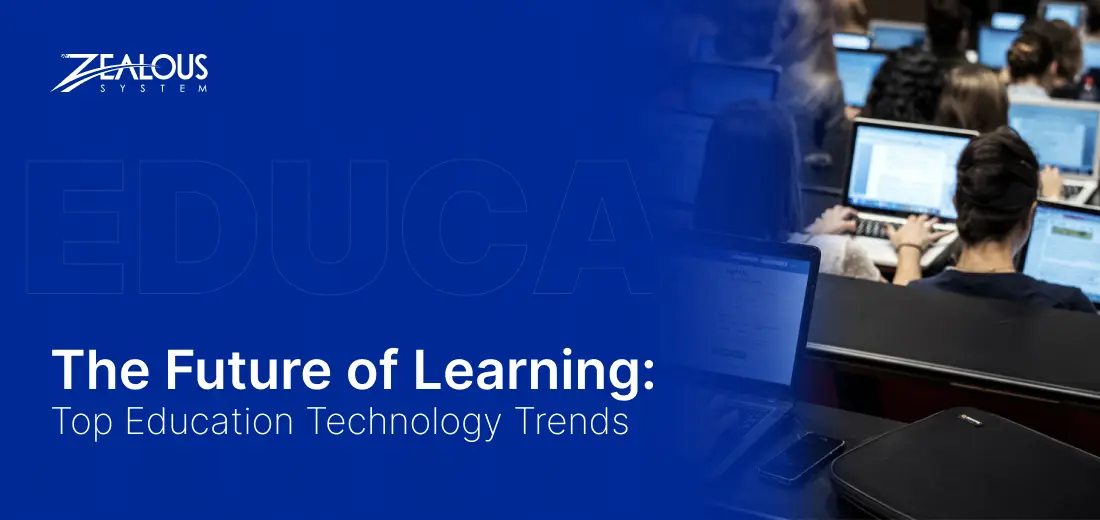


In 2025, education is changing rapidly due to new technologies like artificial intelligence (AI) and the evolving demands of the job market. The old way of focusing education mainly on young people doesn’t suit a world where change happens quickly. At the same time, skills such as emotional intelligence and communication, which were often overlooked before, are now more important as machines handle many routine tasks.
Let’s look at the main trends shaping education in 2025 and the opportunities they present for individuals preparing for success in a fast-changing world.
Educational technology (EdTech) uses technology to improve teaching and learning. It helps deliver lessons, gives access to information and resources, and creates chances for collaboration and communication.
The main aim of using technology in education is to make learning better, more interesting, and easier to access.
1. Artificial Intelligence (AI) in Education
Artificial intelligence is changing the landscape of education by personalizing how students learn. In 2025, we can expect AI to tailor lessons to fit the specific needs of each student, creating a more individualized learning experience. Furthermore, AI can take care of administrative duties, improving efficiency in education and giving teachers more time to engage with their students.
Virtual and augmented reality are reforming learning by offering immersive experiences. In 2025, students will be able to navigate virtual worlds, witness historical events, or comprehend intricate scientific ideas through VR and AR. This hands-on method will improve their understanding of various subjects in a more captivating manner.
Gamification is the process of incorporating game-like features into educational experiences, including rewards, challenges, and leaderboards. By 2025, it is expected that more schools will adopt gamification strategies to inspire students, transforming education into a more enjoyable and interactive experience. This trend aims to boost student engagement and may result in improved learning outcomes.
Cloud technology enables students and teachers to access learning materials and resources from virtually anywhere at any time. By 2025, we can expect cloud-based platforms to become increasingly prevalent, providing flexible learning options and enhancing collaboration among students and teachers, even when they are in different locations.
Learning analytics will enable educators to monitor student progress more effectively. By 2025, data will be utilized to assess student performance, pinpoint areas needing assistance, and tailor learning experiences. This approach empowers teachers to provide enhanced support and boost student success.
Adaptive learning technology modifies content according to the learner’s progress. By 2025, more educational institutions are likely to embrace adaptive learning tools, offering customized learning paths for students. This method ensures that each student can learn at their own speed, boosting their chances of achieving success.
With the rise of smartphones, mobile learning is set to expand significantly by 2025. Students will have the opportunity to engage with educational content through various apps and websites, allowing for a more flexible approach to learning. This development will ensure that education is accessible to everyone, whether they are at home, traveling, or in a classroom setting.
In 2025, students will have access to collaborative learning tools that enable them to work together on projects in real-time, regardless of their location. Resources such as online whiteboards, group chats, and video conferencing will enhance teamwork and boost communication skills among students.
Blockchain technology is gradually entering the education sector to enhance secure and transparent record-keeping. By 2025, it might be employed to verify student credentials, guaranteeing that diplomas and certificates are authentic and easily obtainable.
The introduction of 5G networks is set to significantly improve the educational experience by 2025. With faster internet speeds, students will benefit from more interactive and high-quality content, including video streaming, real-time collaboration, and virtual classrooms, making learning more efficient and accessible for everyone.
Summing up, educational technology (EdTech) is transforming education by making it flexible, engaging, and tailored to individual needs. As an education software development company, staying abreast of trends like e-learning, mobile learning, gamification, AR/VR, AI, personalized learning, and global online communities is crucial. These innovations are creating a dynamic and inclusive learning environment.
Looking to the future, the impact of these trends is set to grow, shaping a technologically empowered educational landscape. Whether you’re a developer, entrepreneur, or education professional, embracing the opportunities these innovations offer is key to shaping the future of EdTech and education as a whole.
Our team is always eager to know what you are looking for. Drop them a Hi!
Comments